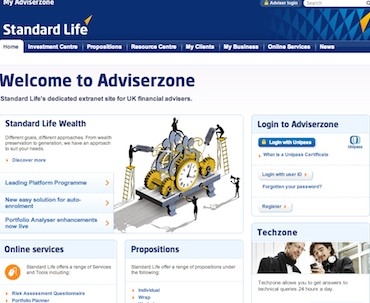Standard Life is urging the Government to introduce an incentive-led pensions regime rather than one based on the current system of tax relief.
In its response to the Government’s consultation on pensions tax relief, the company proposes moving to a new flat-rate incentive on employee contributions.
Standard Life has put forward a new ‘Incentivised-Exempt-Taxed’ (IET) model – in contrast to the mooted TEE ISA-style regime or the current EET system.
A flat-rate incentive of 33.33% - expressed as “you pay £3 and the Government pays £1” is equivalent to tax relief at 25% under the current regime.
Jamie Jenkins, head of pensions strategy at Standard Life, said: “Our proposed flat-rate incentive is the best chance we have of driving the levels of retirement saving needed to ensure that UK consumers are adequately prepared for retirement.
“This simple and clear single rate incentive system would help engender greater personal responsibility by driving better understanding of, and ultimately engagement with, pension saving.
{desktop}{/desktop}{mobile}{/mobile}
“The financial benefit of paying into a pension becomes much clearer and easier for people to understand. A single rate incentive system offers the opportunity to position the Government contribution like the employer contribution, creating a powerful matching incentive to save. It can be easily administered through ‘relief at source’ arrangements, which are widely used for workplace pensions today. We believe a flat-rate incentive at 33.33% is both fair and sustainable.
Standard Life believes that incentives should be targeted at those people for who saving is most difficult but any system must be affordable for government such that it doesn’t require constant tinkering, as we’ve seen with the current system.
Mr Jenkins added that he believed that a move to a TEE regime would be detrimental for pension saving. Pensions would no longer enjoy tax privileges over Isa so many people would not voluntarily lock up their wealth until retirement.
He added: “Even if some kind of upfront incentive was applied to a TEE system there is a genuine concern that future governments would be under pressure to tax income in retirement, leading to uncertainty for people saving now.”
“A move to a TEE system could undermine the success of auto enrolment into workplace pensions, with more generous employer schemes potentially being reduced to the bare minimum contribution levels.”

